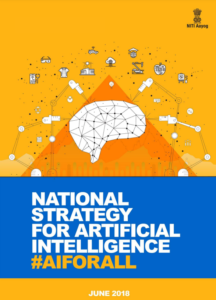As we embark on a journey through time, exploring the captivating history of artificial intelligence (AI), we uncover a narrative rich with innovation, ingenuity, and evolution. From its humble beginnings to its profound impact on modern society, the history of AI offers a fascinating glimpse into humanity’s quest to create intelligent machines.
Origins and Early Foundations
The seeds of artificial intelligence were sown long before the term itself was coined. Ancient civilizations pondered the possibility of creating artificial beings with human-like intelligence, but it wasn’t until the 20th century that significant strides were made in turning this vision into reality. The concept of AI as we know it today began to take shape in the 1950s, with the seminal Dartmouth Conference in 1956 serving as a pivotal moment in its history.
The Birth of AI: 1950s-1960s
During the 1950s and 1960s, pioneers such as John McCarthy, Marvin Minsky, Allen Newell, and Herbert Simon laid the groundwork for the field of AI. Early AI programs focused on symbolic problem-solving and logical reasoning tasks, paving the way for future advancements in the field.
AI Winter and Expert Systems: 1970s-1980s
The 1970s and 1980s saw periods of both optimism and disillusionment with AI, commonly referred to as “AI winters.” Despite setbacks, progress continued with the development of expert systems – AI programs designed to mimic human expertise in specific domains. These systems laid the foundation for later developments in machine learning and neural networks.
The Renaissance of AI: 1990s-Present
The 1990s marked a resurgence of interest in AI, fueled by advancements in computing power and breakthroughs in machine learning algorithms. Applied AI technologies such as natural language processing and computer vision began to emerge, laying the groundwork for the integration of AI into everyday life in the 21st century.
Key Milestones in AI History
- 1950: Turing Test: Alan Turing proposed a test to determine a machine’s ability to exhibit intelligent behavior equivalent to that of a human.
- 1956: Dartmouth Conference: The birth of AI as a field, with pioneers laying the groundwork for future developments.
- 1997: Deep Blue vs. Kasparov: IBM’s Deep Blue defeated chess world champion Garry Kasparov, showcasing AI’s strategic decision-making abilities.
- 2011: Watson Wins Jeopardy!: IBM’s Watson AI triumphed over human champions in the quiz show Jeopardy!, demonstrating its natural language processing capabilities.
- 2016: AlphaGo Defeats Lee Sedol: DeepMind’s AlphaGo AI defeated Go world champion Lee Sedol, showcasing AI’s ability to tackle complex, intuitive tasks.
The Future of AI
As we look to the future, the possibilities for AI are endless. From advancements in robotics and autonomous systems to ethical considerations surrounding AI deployment, the journey ahead is both exciting and challenging. However, one thing remains clear: the history of artificial intelligence is a testament to human creativity, perseverance, and our endless quest to unlock the mysteries of intelligence.
AI Research
AI research encompasses a vast array of disciplines, methodologies, and goals aimed at advancing the capabilities of artificial intelligence. This field has witnessed remarkable growth and innovation over the years, driven by the pursuit of creating intelligent systems that can perceive, reason, learn, and act autonomously. Let’s delve deeper into the fascinating world of AI research:
1. Machine Learning: At the forefront of AI research is machine learning, a branch focused on developing algorithms and statistical models that enable computers to learn from and make predictions or decisions based on data. Techniques such as supervised learning, unsupervised learning, and reinforcement learning play a crucial role in training AI systems to perform specific tasks.
2. Natural Language Processing (NLP): NLP is a subfield of AI dedicated to enabling computers to understand, interpret, and generate human language. Research in NLP encompasses tasks such as language translation, sentiment analysis, and question answering, with the goal of creating AI systems capable of comprehending and generating human-like language.
3. Computer Vision: Computer vision involves enabling machines to interpret and understand visual information from the real world. Research in this field focuses on developing algorithms that can analyze and interpret images and videos, enabling applications such as object recognition, image classification, and autonomous driving.
4. Robotics: Robotics is an interdisciplinary field that combines AI, mechanical engineering, and computer science to design and build intelligent machines capable of performing tasks autonomously. AI research in robotics aims to create robots that can perceive their environment, make decisions, and interact with humans and other machines in a meaningful way.
5. Deep Learning: Deep learning is a subset of machine learning that employs artificial neural networks with multiple layers to learn complex patterns and representations from data. Research in deep learning has led to significant advancements in various AI applications, including image and speech recognition, natural language processing, and autonomous systems.
6. Ethical AI: With the increasing integration of AI into various aspects of society, ethical considerations have become a crucial focus of AI research. Researchers are exploring ethical frameworks, fairness, transparency, and accountability in AI systems to ensure that they align with societal values and do not perpetuate biases or harm.
7. Explainable AI: Explainable AI (XAI) is an emerging area of research aimed at developing AI systems that can provide explanations for their decisions and actions in a human-understandable manner. This research is essential for building trust and transparency in AI systems, particularly in high-stakes domains such as healthcare and finance.
8. AI Safety and Security: As AI systems become more powerful and autonomous, ensuring their safety and security is paramount. AI safety research focuses on preventing unintended consequences and ensuring that AI systems behave predictably and reliably. Additionally, research in AI security addresses vulnerabilities and threats posed by malicious actors exploiting AI systems.



[…] A Comprehensive History of Artificial Intelligence […]